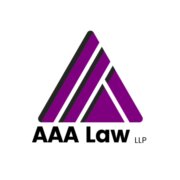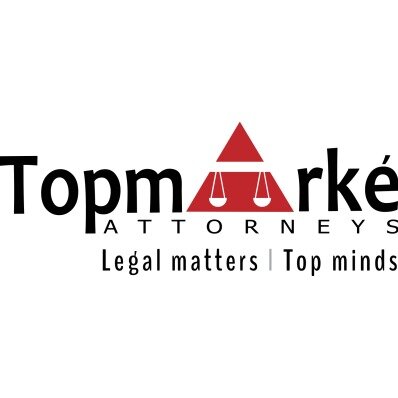Best Private Equity Lawyers in Toronto
Share your needs with us, get contacted by law firms.
Free. Takes 2 min.
List of the best lawyers in Toronto, Canada
About Private Equity Law in Toronto, Canada
Private Equity is a specialized area of finance that involves investing in private companies, often with the goal of restructuring, expanding, or eventually selling a business for profit. In Toronto, a major financial hub in Canada, Private Equity transactions play a significant role in shaping the city’s and the country’s economic landscape. Private Equity law focuses on structuring deals and funds, ensuring regulatory compliance, negotiating acquisitions and dispositions, managing risks, and facilitating the complex relationships between investors, fund managers, and target companies. Legal professionals play a vital role in helping investors, companies, and fund managers successfully navigate the complexities of Private Equity in Toronto’s dynamic market.
Why You May Need a Lawyer
Private Equity transactions can be complex and involve significant sums of money. You may need a lawyer experienced in this field for a variety of reasons, such as:
- Advising on the formation and structure of Private Equity funds
- Drafting and negotiating investment agreements
- Conducting due diligence on target companies
- Ensuring compliance with applicable securities and corporate laws
- Structuring mergers, acquisitions, or divestitures related to Private Equity investments
- Addressing tax considerations for both funds and investors
- Resolving disputes between partners, investors, or other stakeholders
- Advising on exit strategies and the legal implications of selling or taking portfolio companies public
Having a skilled Private Equity lawyer can safeguard your interests, manage risk, and contribute to the success of your investment or business goals.
Local Laws Overview
Toronto, as part of Ontario, is governed by provincial and federal laws that impact Private Equity. Key aspects include:
- Securities Regulation: The Ontario Securities Commission (OSC) oversees the offering and sale of securities, including Private Equity investments. Private placements, exempt market rules, and disclosure obligations are especially relevant.
- Corporate Law: Company formation, governance, and shareholder rights are governed by the Ontario Business Corporations Act and the Canada Business Corporations Act.
- Taxation: Federal and Ontario tax laws shape the structuring of Private Equity funds and investments, influencing returns and arrangements.
- Competition and Antitrust: The Competition Act applies to mergers and acquisitions, requiring careful analysis of market impact and compliance with reporting thresholds.
- Employment and Labour Law: When investing in or acquiring businesses, employee contracts, benefits, and compliance with employment standards become relevant.
- Intellectual Property (IP): Protecting IP assets during Private Equity transactions is critical for many businesses in Toronto's diverse economy.
Given the interplay of these laws, legal expertise is vital for anyone participating in the Private Equity sector in Toronto.
Frequently Asked Questions
What is Private Equity?
Private Equity involves investing directly in private companies, or buying out public companies to make them private, with the aim of increasing their value and earning a return on investment when the company is sold or taken public again.
How is Private Equity different from Venture Capital?
Private Equity typically invests in established companies requiring capital for expansion or restructuring, while Venture Capital focuses on early-stage startups with high growth potential. The investment amounts, risk profiles, and involvement levels often differ between these two types of funding.
Are there restrictions on who can invest in Private Equity in Toronto?
Yes, Private Equity investments are usually available only to accredited or institutional investors due to regulatory requirements. These investors typically meet specific income or asset thresholds defined by securities regulations.
What kind of legal structures are used for Private Equity funds?
Common structures include limited partnerships and limited liability partnerships. These provide flexibility, tax efficiency, and limited liability for investors, but each has particular legal and tax implications.
What is due diligence in Private Equity?
Due diligence is the process of thoroughly investigating a target company before making an investment. This includes reviewing legal, financial, tax, regulatory, and operational matters to identify potential risks or liabilities.
What are management fees and carried interest?
Management fees are annual charges paid to the fund manager for operating the fund. Carried interest is a share of the fund's profits that goes to the manager as an incentive for successful investing, usually above a certain performance threshold.
How are Private Equity transactions regulated in Toronto?
Transactions must comply with federal and Ontario securities laws, which regulate how investments can be marketed and sold, who can invest, and what disclosures are required. Regulatory oversight also includes anti-money laundering and anti-corruption compliance.
Can I invest in Private Equity through my RRSP or TFSA?
In some cases, certain Private Equity investments may be eligible for holding in registered accounts like RRSPs or TFSAs, but they must meet specific criteria. It is important to get legal and financial advice on this matter.
What are typical exit strategies for Private Equity investments?
Common exit strategies include selling the portfolio company to another investor (secondary sale), taking the company public through an initial public offering (IPO), or recapitalization.
How can a lawyer help me in a Private Equity transaction?
A lawyer can assist with structuring the transaction, preparing and negotiating documents, ensuring compliance with laws and regulations, conducting due diligence, addressing tax considerations, and managing disputes or negotiations.
Additional Resources
For those seeking further information or legal assistance in Private Equity in Toronto, the following resources can be useful:
- Ontario Securities Commission (OSC) - Regulator overseeing securities and investment activities in Ontario
- Canadian Venture Capital and Private Equity Association (CVCA) - Industry body for Private Equity professionals in Canada
- Law Society of Ontario - Provides a lawyer directory and information on obtaining legal services
- Canada Revenue Agency (CRA) - For information about the tax implications of Private Equity investments
- Competition Bureau Canada - Guidance on mergers, acquisitions, and competition rules
Next Steps
If you are considering a Private Equity investment, starting a fund, or involved in a transaction in Toronto, it is important to seek legal guidance from an experienced Private Equity lawyer. Begin by:
- Identifying and consulting with lawyers who specialize in Private Equity law
- Preparing your questions and relevant documents for an initial meeting
- Discussing your goals, concerns, and potential legal issues with your lawyer
- Understanding the fee structures and scope of services offered by your legal counsel
- Gathering information from professional associations and regulatory bodies to stay informed about your rights and obligations
Sound legal advice is essential for protecting your interests and ensuring the success of your Private Equity activities in Toronto.
Lawzana helps you find the best lawyers and law firms in Toronto through a curated and pre-screened list of qualified legal professionals. Our platform offers rankings and detailed profiles of attorneys and law firms, allowing you to compare based on practice areas, including Private Equity, experience, and client feedback.
Each profile includes a description of the firm's areas of practice, client reviews, team members and partners, year of establishment, spoken languages, office locations, contact information, social media presence, and any published articles or resources. Most firms on our platform speak English and are experienced in both local and international legal matters.
Get a quote from top-rated law firms in Toronto, Canada — quickly, securely, and without unnecessary hassle.
Disclaimer:
The information provided on this page is for general informational purposes only and does not constitute legal advice. While we strive to ensure the accuracy and relevance of the content, legal information may change over time, and interpretations of the law can vary. You should always consult with a qualified legal professional for advice specific to your situation.
We disclaim all liability for actions taken or not taken based on the content of this page. If you believe any information is incorrect or outdated, please contact us, and we will review and update it where appropriate.

















